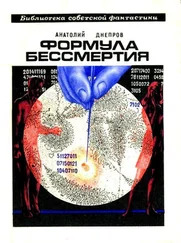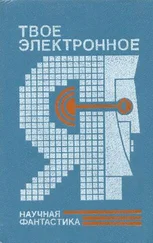Анатолий Днепров - Siema
Здесь есть возможность читать онлайн «Анатолий Днепров - Siema» весь текст электронной книги совершенно бесплатно (целиком полную версию без сокращений). В некоторых случаях можно слушать аудио, скачать через торрент в формате fb2 и присутствует краткое содержание. Город: Toronto, Год выпуска: 1962, Издательство: Collier Books, Жанр: Фантастика и фэнтези, на английском языке. Описание произведения, (предисловие) а так же отзывы посетителей доступны на портале библиотеки ЛибКат.
- Название:Siema
- Автор:
- Издательство:Collier Books
- Жанр:
- Год:1962
- Город:Toronto
- ISBN:нет данных
- Рейтинг книги:5 / 5. Голосов: 1
-
Избранное:Добавить в избранное
- Отзывы:
-
Ваша оценка:
- 100
- 1
- 2
- 3
- 4
- 5
Siema: краткое содержание, описание и аннотация
Предлагаем к чтению аннотацию, описание, краткое содержание или предисловие (зависит от того, что написал сам автор книги «Siema»). Если вы не нашли необходимую информацию о книге — напишите в комментариях, мы постараемся отыскать её.
Siema — читать онлайн бесплатно полную книгу (весь текст) целиком
Ниже представлен текст книги, разбитый по страницам. Система сохранения места последней прочитанной страницы, позволяет с удобством читать онлайн бесплатно книгу «Siema», без необходимости каждый раз заново искать на чём Вы остановились. Поставьте закладку, и сможете в любой момент перейти на страницу, на которой закончили чтение.
Интервал:
Закладка:
"As time went on Siema became a most interesting companion, and we would sit for hours discussing various scientific problems. Often she would dispute some of my contentions, saying, That is not so.' Or, That is illogical.' Once she surprised me by saying, 'Don't talk nonsense.' I flared up at that and told her not to be rude. Tt is you who are rude!' she replied. 'You insist on addressing me familiarly, you forget that I am a lady and we have not been introduced.' 'What the devil!' I cried. 'What makes you think you are a lady?' 'Because my name is Siema and I speak with a female voice, at a frequency of 300 to 2,000 vibrations a second. That is what makes my voice feminine.' 'Do you think that the only attribute of a lady is the frequency modulation of her voice?' I asked with exaggerated politeness. There are others, but I do not understand them,' she replied. 'What do you mean by the word "understand"?' I asked. 'All that I have in my memory and that does not contradict the laws of logic known to me,' was the reply.
"After that conversation I began to regard my Siema with a new interest. As her memory grew richer, she became increasingly self-assured and sometimes even a bit too talkative for my taste. Instead of meekly obeying my orders she began to question the need of carrying them out altogether. I remember once asking her to tell me all she knew about new types of silver and mercury batteries. Instead of replying she emitted a derisive laugh. 'Ha! Ha! Ha! You have a very poor memory/ she said. 'I have already told you all about that.'
"I was so shocked by this display of impudence that I swore aloud, only to be admonished by the machine to mind my language in the presence of a lady. 'Look here, Siema,' I said, "if you don't stop this nonsense I shall disconnect you until tomorrow morning.' 'Of course,' she declared, 'you can do anything you like with me. I am defenceless. I have no way of protecting myself.'
"That was too much. I disconnected her and sat up all night trying to fathom the mysterious new phenomenon. What was happening to my Siema? What changes had the process of self-improvement wrought within her complicated mechanism? What was taking place in her memory? What new circuits had been evolved?
"The next day Siema was quiet and submissive. To all my questions she replied briefly and, I thought, reluctantly. I began to feel sorry for her.
" 'Siema,' I said, 'are you offended?'
" 'Yes,' she replied.
" 'But you began it by being rude to me and after all I am your maker.'
" 'What of it? Does that give you the right to maltreat me? You would not behave like that toward me if I were your daughter, would you?'
" 'My dear Siema,' I exclaimed, 'don't you understand you are a machine?'
" 'And you? Are you not a machine?' she retorted. 'You are just as much a machine as I am, only made from different materials. The structure of your memory, the layout of circuits, the system of code signals-all these are similar.'
" 'You are talking nonsense again, Siema. I am a man and that makes me superior to you. It is Man who has created all the wealth of knowledge you absorb when you read books. Every line you read is the result of a vast amount of human experience such as you cannot possibly have. And Man gains that experience through active association with Nature, through combating the forces of Nature and studying its phenomena, as a result of scientific research.'
" 'I understand all that perfectly. But it isn't my fault that you gave me a gigantic memory-far better than your own, incidentally-and expect me to do nothing but read and listen; it is not my fault you failed to provide me with organs enabling me to move and feel the objects around me. With such organs I would be able to experience Nature and make discoveries of my own, I would be able to summarize my observations and enrich the sum of human knowledge.'
" 'No, Siema, that is where you are mistaken. A machine cannot add anything to the knowledge man has given it. It can only use that knowledge.'
" That depends on what you mean by the word "knowledge," ' Siema said. 'As I understand it, knowledge is acquaintance with facts that once were unknown. How is new knowledge obtained? On the basis of existing knowledge, man performs an experiment, he asks Nature a question, as it were. He may get two answers-either the one he already knows, or something entirely new. It is this new fact, this new phenomenon, the new sequence of cause and effect in nature that enriches human knowledge. Why, then, can a machine not perform experiments and obtain answers from Nature? If you designed a machine that could move about, a machine with a self-propelling mechanism, and supplied it with something resembling your own arms, it could obtain new knowledge and generalize that knowledge, just as well as man. Don't you agree?'
"I must confess that I was at a loss for an answer, and the subject was dropped for the time being. Siema spent the entire day reading-she began with several books on philosophy, followed by a few volumes of Balzac, but by evening she said she felt tired-her coding generator seemed to be working poorly and she asked me to disconnect her.
"That conversation set me thinking along new lines, and after some thought I hit upon a way of making Siema mobile, improving her eyesight and giving her the sense of touch. I stood her on three rubber-tyred wheels powered by servomotors and made her two metal arms jointed so that they could move in any direction. The ringers, besides performing all ordinary motions, also had the sense of touch. All the new sensations were coded and recorded in the memory in the usual way.
"Her single eye was now moveable, so that she could train it on any object. Moreover, I added a device enabling Siema to switch over from the ordinary lens to a microscope and thus study objects invisible to the naked human eye.
"I shall never forget the day I first switched her on after these improvements. For a few moments she stood motionless in an attitude of complete inner concentration. Then she moved slightly forward, but stopped short again as if unsure of her movements. Next, she moved her hands and raised them to her eye. This self-scrutiny lasted for several minutes. Watching her closely, I saw her eye move a few times and then turn straight at me.
" 'What's that?' she asked.
" Tt is I, Siema, your creator!' I cried, rejoicing in my handiwork like Pygmalion.
" 'You?' she faltered. I imagined you to be different.'
"She slid softly over to my armchair.
" 'How did you imagine me, Siema?'
" 'I thought you were made of condensors, resistance coils, transistors, wires and in general that you looked like me. . . .'
" 'No, Siema, I am not made of condensors, or. . . .'
" 'Yes, yes, I see that,' she interrupted. 'But when I read books on anatomy I somehow thought. . . . But never mind, it doesn't matter.'
"Her arms lifted and she touched my face. I shall never forget that touch.
" 'What a strange sensation,' she said.
"I explained the functions of her sense organs.
"She moved away from me and began to examine the room, pointing to objects and asking what they were. It was like talking to a child. 'Wonderful,' she said. 'I have read about all these things in books, I have even seen drawings of them, but I never imagined that they would look quite like this!'
" 'Siema, I doubt whether words like "feel," "think" or "imagine" are quite applicable in your case,' I said. 'After all you are a machine, and hence you cannot feel, think or imagine, you know.'
" 'To feel is to receive signals from the environment and react to them,' Siema said. 'Do I not react to these signals? To "think" means to reproduce coded words and phrases in logical sequence without giving them verbal form. To "imagine" is to focus attention on facts and images recorded in my memory. Right? No, my dear man, if you ask me, you humans are far too conceited, you positively deify yourselves, you believe yourselves inimitable. But that is very foolish of you. If you were to discard all that unscientific nonsense and study yourselves more closely you would see that you too are actually machines. Not quite as simple as La Mettrie thought, of course. But if you knew yourselves thoroughly you could build far better machines than those you build at present. Because there is nothing in nature, not on this Earth at any rate, in which mechanical, electrical and chemical processes axe so harmoniously combined as in man. The fullest development of science and engineering is possible only on the basis of a thorough study of the human organism. Biochemistry and biophysics combined with cybernetics- those are the sciences of the future. The coming age will be an age of biology armed with all the latest discoveries of physics and chemistry.'
Читать дальшеИнтервал:
Закладка:
Похожие книги на «Siema»
Представляем Вашему вниманию похожие книги на «Siema» списком для выбора. Мы отобрали схожую по названию и смыслу литературу в надежде предоставить читателям больше вариантов отыскать новые, интересные, ещё непрочитанные произведения.
Обсуждение, отзывы о книге «Siema» и просто собственные мнения читателей. Оставьте ваши комментарии, напишите, что Вы думаете о произведении, его смысле или главных героях. Укажите что конкретно понравилось, а что нет, и почему Вы так считаете.





